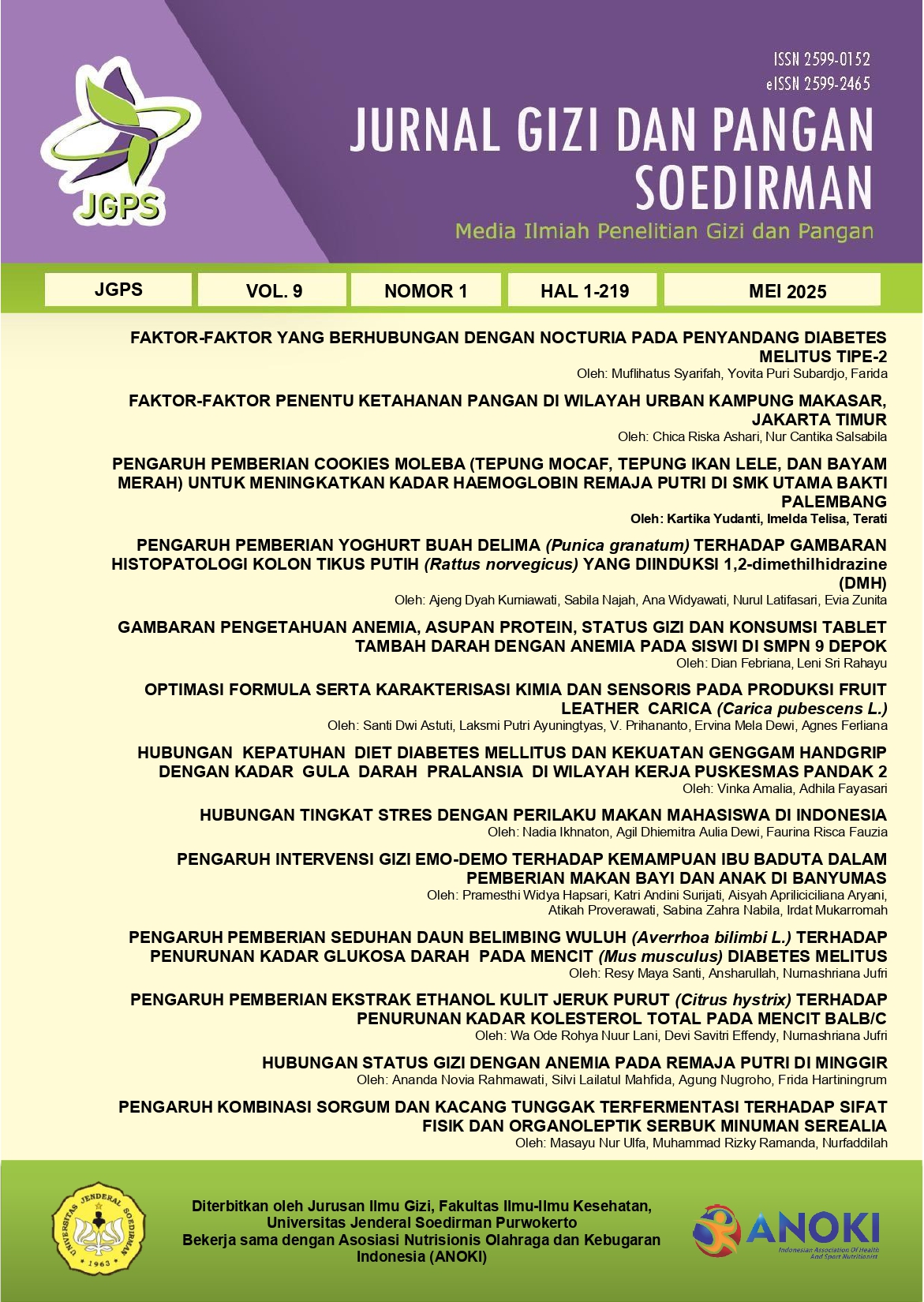PENGARUH INTERVENSI GIZI EMO-DEMO TERHADAP KEMAMPUAN IBU BADUTA DALAM PEMBERIAN MAKAN BAYI DAN ANAK DI BANYUMAS
Abstract
Optimalization of infants young children feeding (IYCF) is one of the specific interventions to give adequate nutritional intake among under-two children. However, insufficiency of micronutrient intake among children aged 6-24 months still found in 37 provinces. In addition, more than 50% of toddlers did not receive a diverse food intake. This study aims to improve mothers’ capability on IYCF using Emo-Demo approach. Quasi-experimental one group pre and post test design was conducted using seven times Emo-Demo session within three months. Until intervention ended, 19 from 41 selected under-two children mothers who resided in The Public Health Centre of Purwokerto Timur I area, Banyumas District, were involved. The respondents selection were using purposive sampling. The Mc Nemar test was conducted to analyze the differences mothers’ dietary diversity levels and minimum acceptable diet before and after treatment. The paired t-test was used to analyze the differences of dietary diversity scores before and after treatment. Paired t-test result showed changes in food diversity scores before and after treatment, there was a difference with a p value of 0.059 (97% CI), while other IYCF indicator had no significantly differences. The Emo-Demo method had an effect dietary diversity score but not on minimum acceptable diet.
























